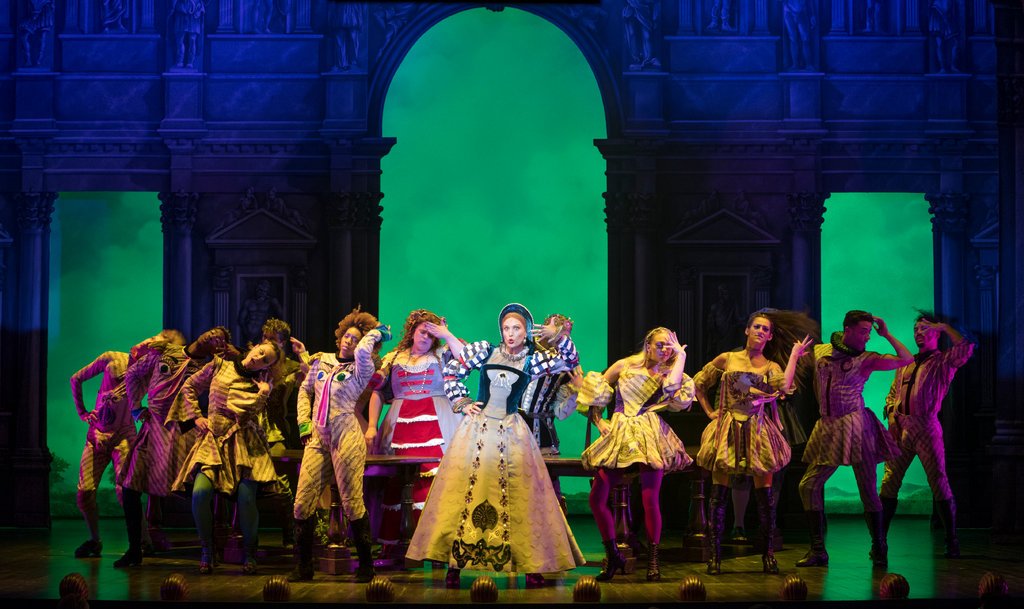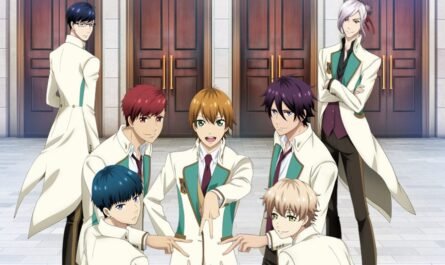Gwanglim Art Center in Sinsa-dong, Gangnam-gu, Seoul on the 21st. The jukebox musical, which unleashed the song of singer Kim Hyun-Sik on stage, continued to perform during the Chuseok holiday. Dongwook Koo (58, self-employed) watched a musical with his wife, daughter, and son. “It’s a musical I haven’t seen in five years,” said Goo. He said, “I like Kim Hyun-Sik’s songs, so I wanted to listen to them in musicals, and I wanted to recall the memories of my youth while watching the musicals.”
The jukebox musical takes its name from the jukebox, a machine that plays popular songs when you insert a coin. It refers to a musical in which a story is created and performed based on a popular piece with the public.
The original jukebox musical is a compilation of the Swedish pop group ABBA hits. After premiered in London’s West End in 1999, it set a new box office record, performing in over 50 countries worldwide. was narrated so that the audience liked and familiar songs of singers fit into the newly-created story. Since then, many jukebox musicals have followed this approach.
This jukebox musical is popular again at home and abroad in the second half of this year. The three works nominated for the ‘Best Musical’ (Best Picture) at the 2020 Tony Awards held on the 26th (local time) were all jukebox musicals. The musical is made with the songs of Canadian singer-songwriter Alanis Morissette in 15 categories, the musical where you can listen to several pop songs in 14 categories, and, which deals with the life of Tina Turner, in 12 categories. was nominated in the dog category. Unusually, all of the nominees for the Tony Award for Best Picture are jukebox musicals, which is a testament to the popularity of jukebox musicals.
In December, the musical, which deals with the music and life of Michael Jackson, the king of pop, will premiere on Broadway. Two-time Pulitzer Prize-winning screenwriter Lynn Nottage wrote the screenplay. In, you can listen to the songs of Michael Jackson, who was far from Broadway during his lifetime, along with a musical-type drama. It is a work co-produced by CJ ENM, and there is a possibility that it will be shown in Korea after the Broadway premiere.
Jukebox musicals are continuing in Korea as well. Following and, a song made by Shin Jung-Hyun opened its doors. , which unfolds the story of love and parting as a 100-year Korean popular song, will be released in November through the hands of director Ko Seon-wrong, who is called the trend in the performing arts these days. At the World Culture Industry Forum held in Daegu in July, SM Entertainment executive producer Lee Soo-man said, “We plan to release a jukebox musical, a K-pop musical, which we have been preparing for nearly ten years, next year. We are preparing to present it for the first time.” In addition, based on the alternative rock band Flaming Lips, and, a musical composed of songs by the Britpop band Libertines, is also being prepared. What is the reason why jukebox musicals are so popular both at home and abroad? Analyzed in several ways. First of all, it’s a retro style.
The more complex the times, the greater the tendency to recall the past and recall memories. This is the current time we are struggling with coronavirus. Lim Jin-mo, a famous music critic, said, “Jukebox musicals are gaining popularity in line with the retro craze around the world. It is popular because it brings back memories by showing the brilliant performances of singers who were good when they were young. It makes people who don’t go to the concert hall come to the concert hall,” he said. For audiences who are new to musicals, jukebox musicals have low entry barriers. Familiar songs and music are playing, so you can reduce the feeling of being a first-timer. It’s hard to sit for two or three hours in a concert hall listening to a song you don’t know well. You can get away from such a burden, so many people who are new to musicals choose jukebox musicals. The dramatic life of musicians is also a reason to attract audiences. Park Eun-Seok, a famous music critic, said, “A musician’s life itself is often a drama. It’s common for musicians to lead dramatic lives through challenges, successes, failures, and frustrations. Jukebox musicals are gaining popularity because many fans miss their lives along with the songs made by such musicians.” Jukebox musicals are also attractive to performance producers.
A lot of capital needs to be invested in developing the work because making a musical with proven songs can reduce investment risk. Jukebox musicals also help with marketing. Songs that have already been hit deserve the attention of audiences unfamiliar with the musical genre. Unlike licensed musicals from abroad, the fact that jukebox musicals made in Korea can show Korean sentiment is also a differentiating point. Shin Byung-Cheol, the general producer of Pumpkin Vine, who produced, said, ” contains more than just Kim Hyun-Sik’s music. It is a work based on the tragedy unique to Korea, the division of North and South Korea. It is a Korean sentiment that cannot be felt in licensed musicals.
The audience is looking for that Korean sentiment along with the musician’s song.” A jukebox musical is also an opportunity to broaden the audience’s horizons. Currently, the primary audience for musicals is in their 20s and 30s. The jukebox musical serves as an opportunity to expand the audience to the 50s and 60s. An industry official said, “The audience who is looking for a jukebox musical often wants to listen to the songs they liked when they were young as a musical as they get older. People in their 40s and 70s visit a lot with their husbands, wives, and family.” Producers also reflect this when making jukebox musicals.
Choreographer Seo Byeong-gu, who was in charge of the choreography, said, “Unlike licensed musicals, jukebox musicals focus on the choreography more so that you can feel the Korean sensibility.” I tried to show a retro dance using Various works that can be called the heyday of jukebox musicals, but there are also critical views. As I was making a story with a song that had already been hit, the structure was loose and sometimes criticized for poor play development. When I insert a piece made to fit the story, there are times when the story and the song feel different rather than interlocked. To include a hit song that does not fit the story of the work, unnecessary scenes are included, which reduces the immersion. The original music has to be adapted to the report, but it can disappoint the audience who came expecting the original song. There are often criticisms that it has not been correctly saved or that it has been ruined.











